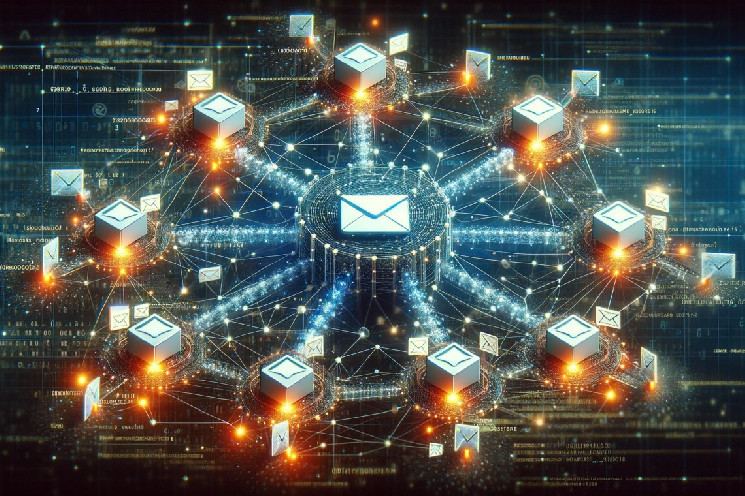
In a revolutionary moment for the world of digital communication, today the first email was successfully sent on the Solana blockchain, marking a historic milestone in the evolution of decentralized communication.
By leveraging the innovative SolMail protocol, users can now send and receive emails seamlessly using just a wallet address, ushering in a new era of secure and decentralized communication on the Solana network.
Summary
SolMail: the protocol that allowed the first email to be sent on the Solana blockchain
Solana, known for its high-performance blockchain infrastructure, has been at the forefront of pushing the limits of what is possible in the decentralized space.
With its lightning-fast transaction speed and low fees, Solana provides an ideal platform for implementing innovative applications like SolMail, which redefine traditional communication paradigms.
The heart of this milestone is SolMail, a revolutionary communication protocol built on the robust blockchain architecture of Solana.
Unlike conventional email services that rely on centralized servers and complex addressing systems, SolMail simplifies the process by using wallet addresses as unique identifiers for sending and receiving emails.
This not only increases security, but also eliminates the need for intermediaries, ensuring direct peer-to-peer communication.
The importance of this result cannot be overestimated. By leveraging the blockchain technology, SolMail offers unprecedented security and privacy for user communications.
Every email sent through SolMail is protected by encryption, providing end-to-end encryption and protection against unauthorized access or tampering.
Efficiency in simplicity: SolMail
This not only safeguards sensitive information, but also ensures the integrity of the communication network.
Furthermore, the integration of SolMail with the Solana blockchain ensures immutability and transparency, which means that every email sent is permanently recorded on the blockchain, creating a verifiable trace of communication.
This feature not only improves accountability, but also provides a decentralized solution for email storage and retrieval, free from the limitations of traditional centralized servers.
The simplicity and efficiency of SolMail make it accessible to a wide range of users, from individual enthusiasts to companies looking for secure communication solutions.
With a simple wallet address, users can send and receive emails seamlessly, without having to resort to complex registration processes or third-party intermediaries. This not only streamlines the communication flow, but also gives users greater control over their data.
Furthermore, the integration of SolMail with the Solana ecosystem opens up a world of possibilities for the future developments of decentralized communication.
With the growth and evolution of the Solana network, the capabilities of SolMail will also grow, with potential improvements such as multimedia support, decentralized file sharing, and integration with other Solana-based applications.
The success of the first email launch on Solana via SolMail is not only a technological achievement, but also a testament to the ingenuity and collaborative spirit of the blockchain community.
It represents a significant step forward in realizing the vision of a decentralized and democratized communication network, where users have the opportunity to have greater privacy, security, and control over their digital interactions.
Conclusions
In perspective, the future of decentralized communication appears brighter than ever, with SolMail paving the way for a new era of innovation and possibilities.
As an increasing number of users embrace the benefits of blockchain technology, we can expect further advancements in decentralized communication protocols, revolutionizing the way we connect and communicate in the digital age.
